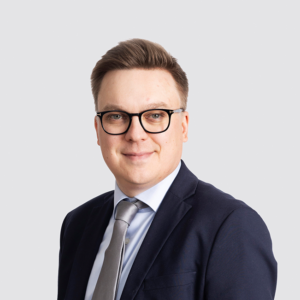The Covid-19 pandemic shows once more that the EU is vulnerable in a more competitive international environment and needs to act jointly. European strategic autonomy does not mean that the EU should decouple from the world, but it has to be able to manage its global dependencies on trade, defence and new technologies.
“As a small, export-oriented country with a vibrant technological sector, Finland is the perfect place to develop a positive vision of a Europe with sisu” says Leading Researcher Niklas Helwig from FIIA.
The EU’s strategic autonomy is largely dependent on its resilience in the global geo-economic competition. China and the US are increasingly using economic instruments to realize their geopolitical interests. The freedom of the EU and its member states to make their own foreign policy decisions and carry them through depends on their economic toolbox.
“In practice, this means that the EU is able to regulate new technologies, as well as sustain key industries,” Helwig says.
The Finnish Institute of International Affairs has launched a 1-year research project on European strategic autonomy in a geoeconomic world led by Niklas Helwig. The research focuses on the implications of the EU’s promotion of strategic autonomy for its foreign and security policy, and the EU’s ways of managing its relationship with the US, China and Russia in the pursuit of its strategic autonomy. Read the first FIIA Comment of the project: “Covid-19 calls for European strategic autonomy: The EU needs to manage global dependencies without pulling up the drawbridges“.
The project examines strategic autonomy across the domains of the trade, new technologies, and defence industries. It is in these policy areas that the EU is able to use its vast economic competences in the internal market.
FIIA research team: Niklas Helwig (leading researcher), Elina Sinkkonen and Ville Sinkkonen (team members). In addition to the FIIA team, the project includes researchers from the American University in Washington DC, the Jacques Delors Centre at the Hertie School in Berlin, the Egmont Institute in Brussels, and the Russian Academy of Sciences in Moscow.
The project will result in a series of Briefing Papers in the autumn of 2020 that analyse the EU’s relations with major powers, and a final report in the spring of 2021. The main conference will take place in early 2021, featuring a public event as well. You can subscribe to the publication releases and the event notifications. You can also follow the project as well as other FIIA activities on our channels in Twitter, Facebook and Youtube.
Further information and interview requests:
Leading Researcher Niklas Helwig,
niklas.helwig@fiia.fi, +358 9 432 7746, Twitter: @NHelwig.


